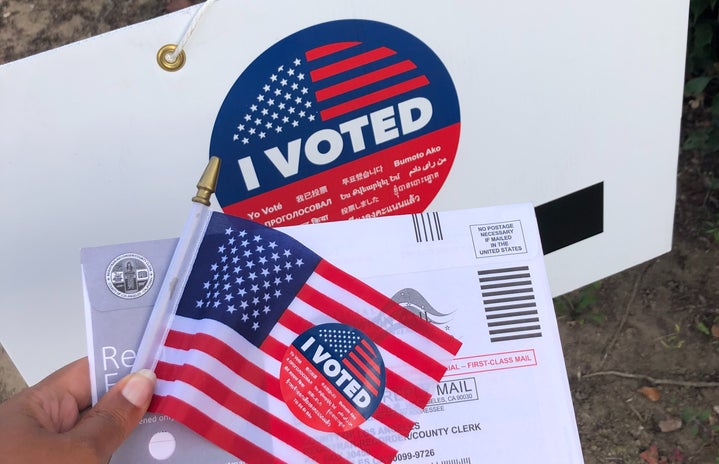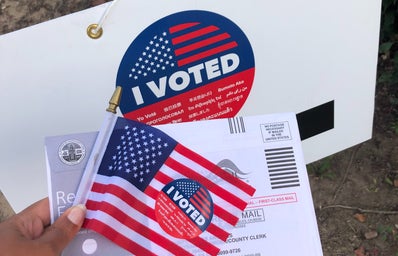Why Diversity Matters in US Politics
The 2022 midterm elections saw women, LGBTQ+, and minority race candidates breaking barriers across the country, and being elected to positions in both local and state-wide races. This election had already made history for the diversity of candidates, with lesbian, gay, bisexual, transgender, and queer people running for office in all 50 states for the first time, and a significant spike in the number of women running for gubernatorial positions. Seeing this progress is exciting, so I want to take a closer look at these historic milestones and why it’s so important to have diversity in our government.
Governor-elect Wes Moore of Maryland became the first Black person to be elected governor in his state, and the third-ever Black person to become a governor in United States (U.S.) history. Moore formerly served as the CEO of the Robin Hood Foundation, a charitable organization that aims to alleviate poverty and fundraise money for disaster relief. His win was important in flipping a seat formerly held by Republican Larry Hogan. In Massachusetts, we saw another gubernatorial seat flipped, this time by Democrat Maura Healey. Healey is not only the first woman to represent her state as a governor, but also the first openly lesbian candidate to become a governor in the U.S.
Another win for the LGBTQ+ community is Becca Balint from Vermont, a Democrat who became the first openly gay candidate to be elected to Congress from her state. She’s also the first woman to be elected to the Vermont Senate. Balint has been active in state politics for a long time, even serving as the president pro tempore of the Vermont Democratic caucus. Her election marked the first time that all 50 U.S. states have elected at least one woman to the U.S. Congress.
We also saw historic wins for transgender candidates during these midterm elections. Democrats Zooey Zephyr of Montana and Leigh Finke of Minnesota became the first transgender women elected to the state legislature, while James Roesner of New Hampshire became the first transgender man to do so. This is definitely an exciting moment for the LGBTQ+ community, especially in a state like Montana, which has historically leaned conservative.
I’m a fan of Maxwell Frost’s passion and commitment to public service, so seeing him become the first member of Gen Z to be elected to Congress was such a thrill, especially in terms of having someone who can provide a young voice in a House of Representatives where the average age is 58. He defeated Republican candidate Calvin Wimbish in the state of Florida’s 10th Congressional District. Frost has long been active in politics and advocacy, organizing since age 15, when he worked in Barack Obama’s 2012 presidential campaign.
As an APIDA-identifying immigrant, Aruna Miller’s win is certainly close to my heart. She’s the first immigrant to hold the office of Lieutenant Governor in the state of Maryland. Miller is also the first South Asian woman elected lieutenant governor in the U.S., the first Asian American lieutenant governor, and the first immigrant to hold statewide office in Maryland.
Seeing these momentous firsts and having representation across all identities of race, gender, sexual orientation, and socioeconomic background is so important for our government to flourish. The U.S. practices a representative democracy system, which means that our government should be representative of the people it serves. Having a diverse government means that different ideas and perspectives are taken into account during policymaking. We’re therefore able to have spokespeople in Congress that understand problems that individual communities face and speak on their behalf.
Representation signals to the public that everyone can participate in politics, no matter what their background is. We want to make sure that people vote and make their voices heard; seeing people who look like them as candidates encourages those in underrepresented groups to take more concrete steps to get involved in politics. Sharing an identity with people in politics can also inspire the younger generation to see themselves as capable of public leadership.
Ultimately, regardless of the results of the 2022 midterm elections as a whole, we need to celebrate the milestones of individuals who have paved the way for others by taking a courageous step into politics, a career that is notoriously difficult to navigate as a member of an underrepresented group. I can’t wait to see what kind of impact these individuals make in their positions, and look forward to a greater variety of opinions and perspectives in Congress when it goes back into session.


